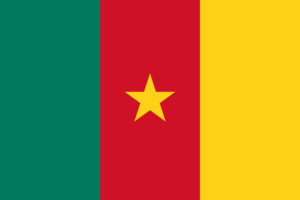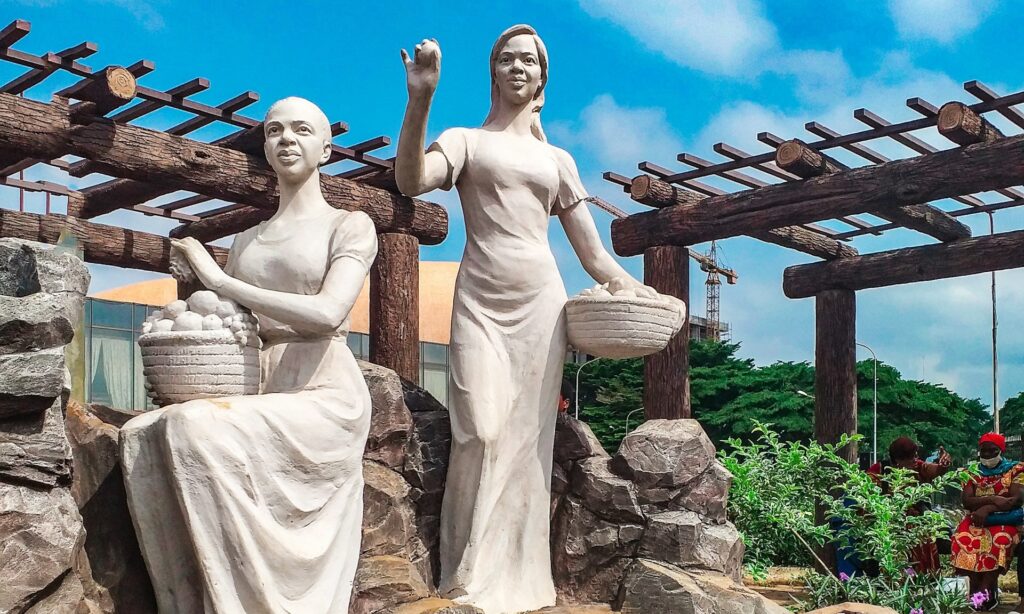Several African countries are named for rivers – The Gambia, Nigeria, and Zambia, to name a few – but while Cameroon is also named for a river, it’s a little more complicated than, say, The Republic of The Congo.
What’s In A Name
A name can be a tantalizing look into a place’s history. When it comes to Cameroon, we can trace the influence of Europe’s colonizing powers. First to arrive were Portuguese explorers. Fernando Po led an expedition up the Wouri River in 1472 and called the river Rio Dos Camarões for the abundance of giant ghost shrimp they found. While the Portuguese never colonized the area, the name seems to have stuck. Germans called their colony Kamerun, and when the French took over after WWI they called it Cameroun, while the British used the familiar Cameroon. So, while Cameroon is one of a handful of countries to be named after a river, they are the only one to be named for a crustacean![1] In fact, shrimp Ndole – a peanut stew with shrimp and vegies – is one of the national dishes of Cameroon.[2]
Colonization
As a colony, Kamerun was rather late. An artificial state created out of the 1884 Conference of Berlin, a diverse array of ethnic groups held sway prior to this, as European trade allies rather than subjects. After the first World War, however, France and England divided up Germany’s colonies – literally, in the case of Kamerun. The east became the French Cameroun (80%), while the west became British Cameroons (the remaining 20%). The British-controlled area was then further divided into Northern and Southern Cameroons.
Tensions with the French led to armed conflicts after World War II, as the people of east Cameroun sought independence. In 1958, l’Union Camerounaise achieved self-governance, then independence on January 1, 1960. In British Cameroons, the southern part voted to join East Cameroon as a single federalized country, while the northern, Muslim-dominated area voted to join Nigeria instead.
The Effects of History Today

While the country has, in general, enjoyed relative stability, the Republic of Cameroon continues to struggle with tensions between Anglophile and Francophile areas. Again, we can also trace this tension through the country’s name. Once the territory included in the German colony was reunited, the country called itself the Federal Republic of Cameroon to reflect the unification of French- and English-dominant areas as partners. However, unrest throughout the 1960s led to a single-party state with limited civil liberties and a referendum that changed the Federal Republic into the United Republic of Cameroon. It might not seem like much, but this small change gave the larger Francophile populations a decided advantage over the smaller Anglophile areas. This change was also emphasized in the changing of two stars on Cameroon’s flag to one.[3] In 1984 “United” was removed from the name, a further diminishing of the rights of the Anglophile minorities that continues to be salt on an aggravated wound.
It is easy to scoff at the mere changing of a name, but besides being hugely symbolic, the changes are also reflective of the political scene at the time. Separatist movements continue in the western, Anglophile areas of Cameroon, fueling political unrest that occasionally erupts into violence. This once-German colony pieced together an African mosaic into a single nation where more than 300 indigenous languages were spoken. Today, Cameroon’s continued ethnic diversity helps earn the moniker “Africa in Miniature,” yet it is the inheriting colonizers and their two languages that continue to define internal political tensions.
Sources:
https://www.cia.gov/the-world-factbook/countries/cameroon/
https://gci-cameroon.org/about-cameroon/history-of-cameroon/
https://www.oxfordbibliographies.com/display/document/obo-9780199846733/obo-9780199846733-0123.xml
[1] https://www.cia.gov/the-world-factbook/about/archives/2021/field/country-name/
